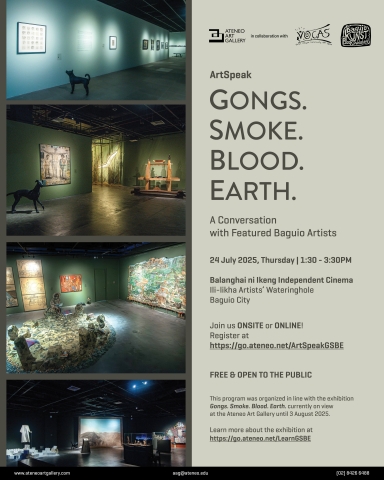So this is what “Care for our Common Home” looks like
19 Jun 2025 | Angel Mata-Jamilan
I have never been to the southern part of the Philippines, but it has always been a quiet dream of mine. So much so that my friends and I even named our Messenger group chat “Bukidnon Kumares”, a manifestation of our shared desire to one day set foot in that part of the country. It wasn’t an urgent dream, just something nestled in my heart, waiting patiently. Deep down, though, I felt like God was gently calling me to go.
One Monday morning, during our office’s regular meeting, our director asked if anyone was willing to volunteer for a week-long immersion in Bukidnon. I hesitated. A week away from home meant leaving my young daughter and for me, that was no small thing. But before I could talk myself out of it, I found my hand rising. To this day, I still don’t fully understand why I volunteered. Maybe it was instinct. Or maybe, it was a leap of faith.
Fast forward to 18 May 2025. It was a Sunday, and there I was, bags packed, waiting at McDonald’s Katipunan, waiting for my fellow participants. It was too late to back out. And I was quite sad because I was missing my daughter’s participation in the Santacruzan. But little did I know, it would also mark the beginning of one of the most meaningful experiences of my life.
Even as we waited for our flight, something inside me began to shift. I was so engaged in a deep, soul-stirring conversation with people I had just met. (Hello Ms Rose, Hello Ms Rina) It was unlike anything I’d experienced in a long time. I felt seen, heard, and connected. I even asked one of my fellow participants, “Why aren't these retreats required of everyone” to which she replied, “Because God meets you where you are. He will not force you.” And I knew then, this immersion was exactly what I needed.
When we arrived in Bendum, a Pulangiyen community, I was struck by their way of life. They remind me of the Mangyans of Mindoro, the province where I grew up. Through the Apu Palamguwan Cultural Education Center (APC), the community lives out the integration of gaup (land), kagena (culture), and the principles of sustainable upland life. This was not education in the way we typically imagine it. It was holistic, deeply spiritual, and rooted in ecology and identity. Witnessing this awakened something in me. It mirrored my own longing to live more responsibly and meaningfully. And it’s amazing how we, lowland people, can co-learn with them in terms of sustainability.
One of the most spiritually grounding moments came during our visit to Balai Laudato Si’. It wasn’t just a physical place, for me, it felt like sacred ground. There, I encountered God in the rhythms of creation-in the wind, the trees, the silence. I was reminded that the work we do in Ateneo is not isolated or self-contained. It’s part of a larger ecological and spiritual web, one that includes communities like Bendum. I began to ask: How do the choices we make in the center ripple outward? How do we honor our interconnectedness with those at the margins?
Throughout the immersion, I became more aware of both my strengths and limitations. I saw how much more I could listen to. I saw how much I still had to learn. I saw the courage it takes for Indigenous Peoples to protect their land and culture. And I realized that our institutional efforts, however well-intentioned, must be continually re-rooted in the lived realities of those we seek to serve.
This experience rekindled in me the call of Laudato Si’, to ecological conversion, to urgency, to compassion. It’s a call to care for our common home, not just in theory, but through concrete action: through sustainability projects, yes, but also through storytelling, spiritual formation, and the creation of spaces where others can encounter the sacred in nature and in each other.
I do not claim to have all the answers right now. But I return with a clearer sense of direction. This is more than just a memory now. It’s a mission.
Angel Mata-Jamilan
Ateneo Institute of Sustainability




